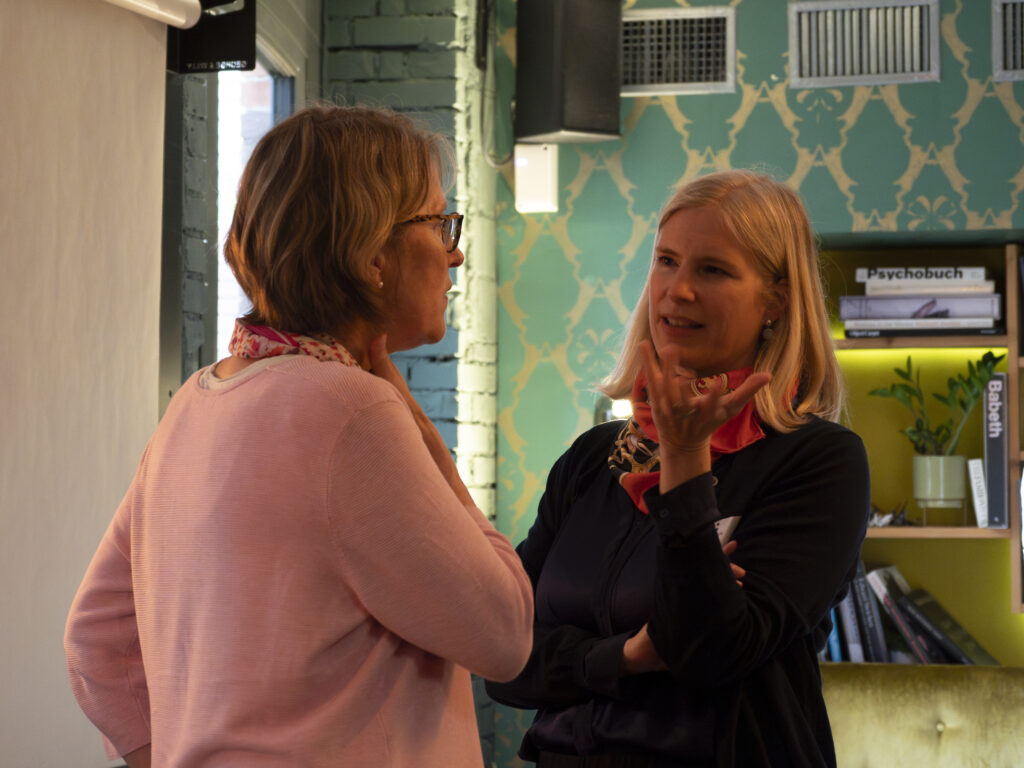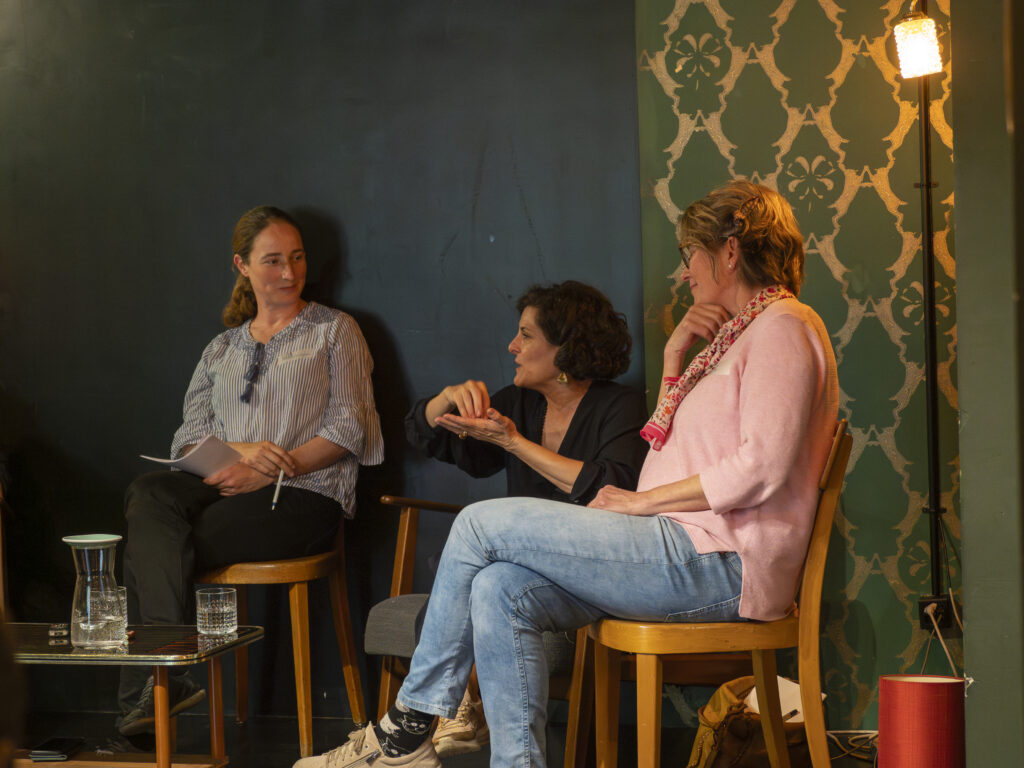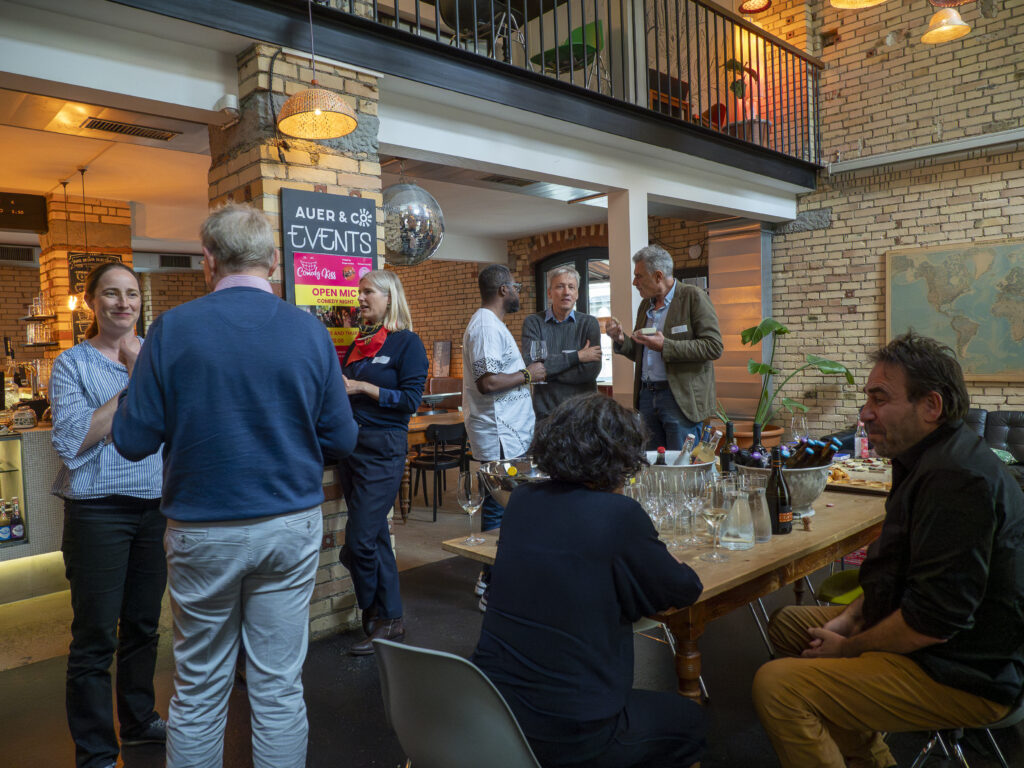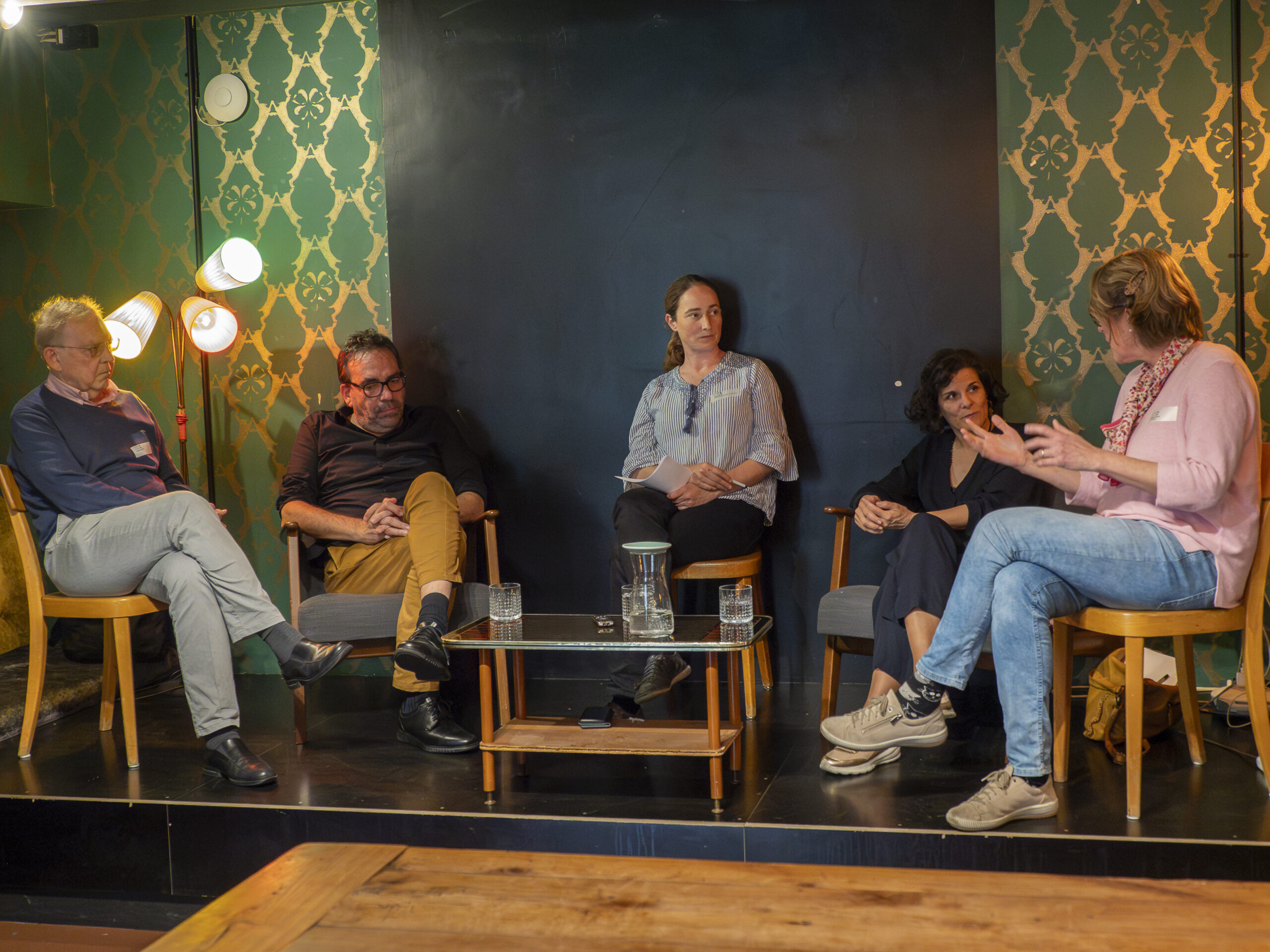Migration is increasingly shaping Switzerland and requires a rethinking of social identities and opportunities to shape them. TRANSIT invited people to an open dialogue on inclusion in migrant societies and the role of adult education.
Migration has always shaped societies. Switzerland is no exception. Since the end of the nineteenth century, it has transformed itself from a country of emigration into a society of migration and has become one of the countries in Europe with the highest proportion of migrants. TRANSIT is interested in the prospects for adult education in a society increasingly characterised by migration. On the one hand, the question arises as to how adult education can help to ensure that migration is perceived as an opportunity for societies and that increasing diversity is used as a creative force. On the other hand, there is also a need to analyse how adult education itself deals with issues of migration and increasing diversity.

Image: Irena Sgier
Against this background, TRANSIT organised an event entitled ‘Inclusion and exclusion in a migration society: implications for the future of adult education’. The aim of the event was to gain insights into the meaning of inclusion and exclusion in a society characterised by migration and to reflect together on what this might mean for the future of adult education. The event took place on 3 June 2024 in the Community Salon of Colab & Café Auer & Co. The invited guests were a diverse group of people working in different forms of adult education and with a connection to the topic of migration. They actively participated in the open dialogue.
Critical discussion on migration and post-migrant societies in Switzerland
The event was divided into two main parts. In the first part, two renowned experts shared insights from their research and their experience in a moderated discussion. Ines Mateos is an expert on education and diversity and a founding member of the think and act tank INES (Institute New Switzerland). Damir Skenderovic is Professor of Contemporary History at the University of Fribourg and specialises in historical research on political parties and migration. The tone of the discussion was socially critical and the two experts criticised the political discourse in Switzerland.
The discussion began with a debate on the terminology used to describe people with and without a ‘migration background’. Ines Mateos pointed out that Swiss men and women whose parents were born in Switzerland are considered the norm. There are hardly any specific terms for them. On the other hand, there are various terms such as ‘people with a migration background’ for the part of the population that was born abroad or has at least one parent who immigrated to Switzerland. Both experts agreed that one of the ways in which these terms serve to categorise and demarcate people in society is by providing an attribution that indicates that a person does not come from ‘here’. It is therefore important to recognise that these terms can also be used to exclude. At the same time, however, they are needed to draw attention to and name certain social inequalities or mechanisms.
Building on this discussion of linguistic categorisation, Ines Mateos and Damir Skenderovic have argued that ‘people with a migrant background’ are no longer a minority in many parts of Switzerland, especially among younger people, but are increasingly becoming a majority. This raises the question of who is including or integrating whom. At this point in time a new way of thinking about migration societies may become necessary. The discussion on post-migrant societies has also emerged from such considerations. In post-migrant societies, migration is an integral part of social identity, and such societies are characterised by a high level of diversity, which serves as a starting point for shaping society.

Image: Irena Sgier
In contrast to this view of society, the two interviewees consider the dominant historical and current discourse on migration in Switzerland to be largely populist and polemical, as it presents migration as a threat to national identity and uses highly emotionalised, simplistic narratives. With regard to historical party research, Damir Skenderovic emphasised that migration is often instrumentalised to mobilise political support and win voters. Indeed, in terms of politicising migration, Switzerland serves as a model for right-wing populist parties across Europe. This debate on migration is reflected in many laws in Switzerland and often in the way people think. It can also lead to irritation and alienation on the part of ‘people with a migration background’, who wonder, for example, whether the election poster they see every day also applies to them.
The two experts then drew attention to a contradiction they perceived. Despite the sometimes populist and xenophobic discourse, Switzerland has been actively attracting the people it needs on the labour market for several decades. For a long time, these were mainly unskilled workers from southern Europe who worked in cleaning or construction, for example. Since the early 2000s, it has increasingly been highly educated people, mainly from Europe, who have been brought in to fill the gaps in skilled labour. The contrast between the political discourse and the labour market-oriented immigration policy means that immigrants are often perceived solely as workers and hardly as people with rights. This is reflected, for example, in the fact that people without Swiss citizenship can lose their residence permit, despite having lived in Switzerland for many years, if they are unable to earn their own income.
Damir Skenderovic pointed out that this attitude has also been the subject of debate in academia, and that there is a term for this attitude: ‘welfare chauvinism’. Welfare chauvinism describes the attitude that a country’s social services should only benefit its own citizens and not immigrants. Some parties in Switzerland use ‘welfare chauvinism’ in their campaigns, promoting the idea that immigrants are a burden on the welfare system.
Overall, Ines Mateos and Damir Skenderovic agreed that in a direct-democratic country like Switzerland, the social and legal treatment of migration needs more discussion and historical analysis. This debate is necessary to avoid repeating mistakes in the future and to make a post-migrant society possible.
Joint reflection on adult education
The second main part of the event was aimed at sharpening this societal discussion in relation to adult education and developing ideas for the development of adult education. All participants were invited to contribute to the dialogue on the basis of their experience and knowledge.
A central point of discussion was the right to education. In particular, refugees without an asylum decision or residence status often do not have this right, even if they have been living in Switzerland for a long time. Some voices spoke of a politically intended exclusion from the right to education. However, the participants agreed that education is important regardless of residence status. If a person stays in Switzerland permanently, education is a cornerstone for social and professional participation. It can also be important for mental health, as it provides a sense of purpose and perspective in life. If a person leaves Switzerland, education is a good basis for building a new life in another country.

Image: Irena Sgier
The expectations placed on immigrants living in Switzerland were also discussed. In principle, the participants agreed that the great obligation placed on people with a ‘migration background’ is not conducive to learning and participation. It can lead to an enormous pressure to justify oneself and to a feeling of foreignness. In particular, it was criticised that this obligation varies according to the social status of the immigrant. For example, while a university professor with little knowledge of German is unlikely to be considered an offender, unskilled workers are under much greater pressure. Although learning a national language is extremely important, the living conditions and educational background of those concerned should also be taken into account. These can have an aggravating effect. If the focus on people’s strengths were to take precedence over the obligation to contribute and the associated focus on deficits, much could be achieved on all fronts – language learning, a sense of belonging, participation in social life.
From the personal experiences of some of the participants it became clear that people, especially teachers and trainers, need to be facilitators. Based on these experiences and the increasing diversity in society, they also argued that diversity skills should play a central role in the training of teachers and trainers.
Many other ideas and visions emerged during the discussion. Some focused on the societal and educational system, others on personal solidarity and involvement in projects. Reference was also made to international guidelines that could already provide pointers for the future of adult education.
Outlook
TRANSIT will continue to pursue the issue of future skills and, in this context, the issue of migration. The Think Tank will use the food for thought from this event, together with further analysis and discussion, to develop perspectives for the future of adult education.
We would like to thank all those present for their valuable, constructive and inspiring collaboration.

Image: Irena Sgier
